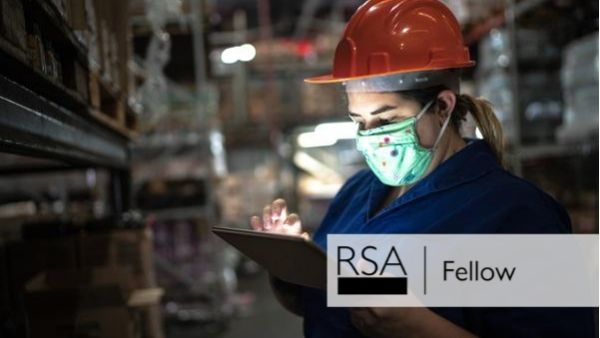Creating a natural and affordable alternative to plastic food packaging in Indonesia
Plépah Project works with a community of farmers and women in rural Indonesia, developing a sustainable village enterprise through the cultivation of agricultural waste such as pelepah pinang (areca palm sheath) for bio-material packaging. Currently, our project is situated in Mendis Village in South Sumatra. The initiative offers alternative solutions to reduce plastic consumption while providing opportunities for the village communities to improve their livelihood.
Our team consists of nine people with a background in design. In 2019, we began researching an alternative for single-use plastic food packaging in Indonesia, given the staggering amount that ends up in landfills, rivers and the sea. With this mission in mind, our research brought us to Sumatra where areca palm is an abundant crop. The plant sheds an enormous amount of leaf sheaths that are usually burned or discarded. We identified that these can be moulded by heat-pressing into disposable plates and packaging that can be composted over 60 days.
The project has created more jobs that allow the involvement of local communities in the production process. We have also collaborated with the village-owned enterprise and local cooperatives to ensure that the community has ownership and benefits from the enterprise. Currently, eight local people have been involved in running the workshop and the cooperative, while 50 smallholder farmers have participated in the project. Given the village’s remote location, we have implemented a concept of micro-manufacturing: a small-scale, decentralised production system that is adaptable and contextually appropriate. We manufacture our own machines, designed to be easily replicated and maintained using local tools and resources.
Considering the fast-growing demand for plastic substitutes, we recognised the tremendous economic opportunity in using this material for alternative food packaging, as it is both affordable and natural. The village communities’ awareness of environmental issues has also increased, especially with being involved as a part of the solution. This is evident in the increased take-up of the product within the community itself. Since the Plépah Project started, the local people have shifted towards using the products, especially during community events.
The project has been implemented as a social enterprise platform, connecting the village with businesses and consumers across Indonesia. With the help of a Catalyst Seed Award from the RSA, we now aim to develop the project further and scale up our impact by strengthening the village enterprises through continuous product development, increasing community participation and facilitating partnerships with the local government.
Top tips
- Before introducing new ideas and solutions, look for ways to integrate them with what is already working at community level.
- Do not rely on replicability; find solutions and approaches that are contextually located.
- Strengthen the internal capacities of communities’ and your own organisation before rushing into scaling up the business.
Gamia Dewanggamanik is a design researcher and founder of the Plépah Project
This article first appeared in the RSA Journal Issue 4 2021
Related articles
-
RSArchive: liquid legacy
RSArchive
Jerry Lockspeiser
How the RSA encouraged the development of the modern wine world across America, South Africa and Australia – and England.
-
Prioritising social value in supply chains
Comment
Aoise Keogan-Nooshabadi
The pandemic and the increase in extreme weather events has exposed the fragility of our global supply chains. Meanwhile, new Government procurement policy means a consideration of social value is no longer an optional extra for business. Aoise Keogan Nooshabadi, FRSA, looks at the ethical, practical and economic benefits of buying and supplying closer to home
-
Working partners
Feature
Jamie Cooke
A Fellow-led project, bringing together Fellows in Scotland and the US is seeking to bring new ideas for the future of work to Inverclyde, a proud post-industrial area outside Glasgow.




Be the first to write a comment
Comments
Please login to post a comment or reply
Don't have an account? Click here to register.